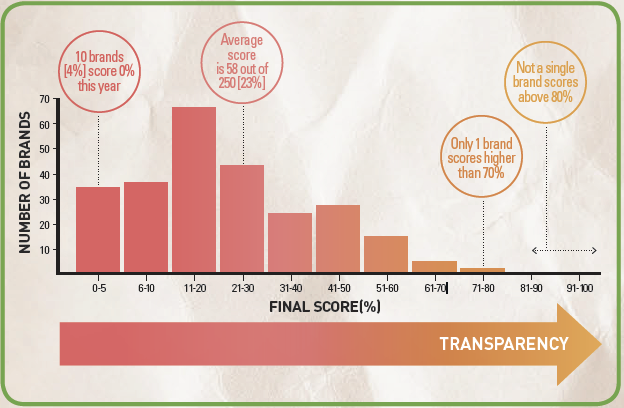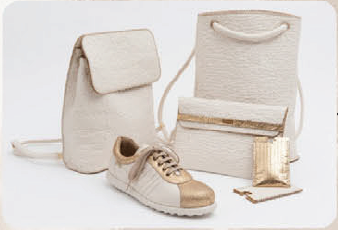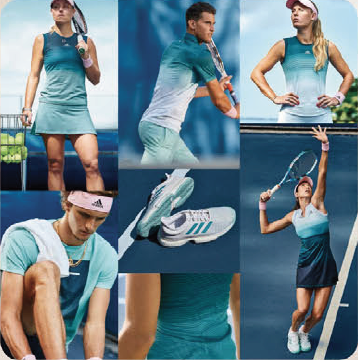In the first half of 2020, the Italian luxury brand Gucci announced that it will reduce fashion shows from five times a year to twice per year. Gucci’s decision seems to be the result of the coronavirus disease 2019 (COVID-19) and recent fashion trends toward ethical fashion. Like Gucci, many fashion brands are joining the sustainable fashion movement. Therefore, the Sungkyun Times (SKT) will look into the concept of ethical fashion, changes in the fashion industry, and the future of ethical fashion.
What is Ethical Fashion?
The Meaning of Ethical Fashion
The concept of ethical fashion is about developing a clothing industry to minimize environmental pollution during production processes, respect labor rights, and keep corporate social responsibility. According to the Ethical Fashion Forum (EFF), a non-profit organization that supports sustainable fashion, ethical fashion is a way of active participation towards reducing poverty, reducing environmental damage, and raising standards in the fashion industry.
Background of Ethical Fashion
For a long time, enterprises have focused on making profits based on the idea of humans controlling nature. Sustainability, however, is rising as a new paradigm of the 21st century. In accordance with the change in people’s perceptions, corporations recognize that they cannot ensure high profits by sticking to the “old style.” As a result, they have started to maintain a healthy balance between economic profit and sustainability. With the increasing necessity of sustainable development, ethical fashion has become the main topic in the fashion world.
Changes in the Fashion World for Ethical Fashion
Recently, the problem of fast fashion - leading to immense garment waste and labor exploitation - was highlighted. Thus, the fashion industry is now trying to transition into ethical fashion.
1. Improvement in Labor Rights
Garment workers’ wages have been considered one of the most important things to change in support of ethical fashion. Until now, specialty store retailer of private label apparel (SPA) brands set up factories in developing countries to meet their needs for a low-cost mass production strategy. according to the BBC, in 2017, shoppers at a Zara store in Turkey found a note saying, “I made the item you are going to buy, but I haven’t been able to get my money!” It was written by unpaid workers from Bravo Tekstil, which manufactured clothes for Zara, and the issue of workers’ unpaid wages was raised. Since then, the fashion revolution, - a movement that demands transparency in the fashion industry - emerged. Prompted by this movement, fashion brands started to disclose the Fashion Transparency Index, which helped people to make choices more ethical.

2. Improvement in Animal Rights
Fashion brands have begun banning the use of animal fur from minks, foxes, rabbits, raccoons, and other species, as a part of their sustainability plans. Luxury brands like Gucci and Prada have announced that they will go fur-free and Gucci even joined the Fur Free Alliance in 2017. Furthermore, fashion companies are developing new materials or using fake leather, also known as eco-leather or eco-fur instead of animal leather. In 2014, Carmen Hijosa, a founder of British fashion brand Ananas Anam, developed Piñatex, a natural textile made from pineapple leaf fiber.

3. Improvement for the Planet
More than 60 million tons of garments are produced every year, but about 70% of these clothes end up in landfills. In 2018, global fashion brand H&M made massive stocks amounting to 4.3 billion dollars. To solve this, H&M launched The Garment Collection Program and now, they collect unwanted, used clothes in recycling bags placed at their stores. Adidas, the global sports brand, collaborated with Parley for the Oceans, an environmental organization that aims to raise awareness for the oceans, and have been launching Adidas X Parley collections since 2015. Clothes from this collection are made using yarn fiber created from upcycled plastic waste collected from oceans.

Future of Ethical Fashion
Transition in Consumer Awareness
It is important for consumers to stay conscious consumers in order to sustain ethical fashion. Consumers need to stay concerned about production processes. In 2015, Jane Birkin, British actress and singer, asked Hermès to remove her name from the Crocodile Birkin bag after finding out the animal cruelty involved in making it. Moreover, acts that encourage ethical enterprises, such as boycotting companies with an unethical system of production and investing in ethical companies, should be accompanied. To maintain ethical fashion, a continuous value for these efforts of consumers is crucial.
Consistent Efforts in the Fashion Industry
Fashion companies should seek ways to help promote conscious consumption. One of the problems of current fashion is a lack of diverse choices regarding ethical goods. So far, SPA brands that do not actively support ethical fashion offer more various fashion items. Thus, fashion brands should devise ways to diversify ethical fashion items. It would be also more effective if fashion brands provide certification labels - Global Organic Textile Standards (GOTS) and Leather Working Group (LWG), an organization that assesses the leather supply chain - on their products. In this way, consumers can join ethical fashion more easily.

150 brands from 32 companies, including Hermès, Chanel, Nike, and H&M joined the G7 Fashion Pact to make the fashion industry more sustainable and cope with climate change in 2019. Likewise, many fashion companies have lately been focusing on developing ethical fashion for a better future. Hoping that the fashion world’s change creates positive effects, let’s join ethical fashion trends. Start with small things like recycling old clothes!
